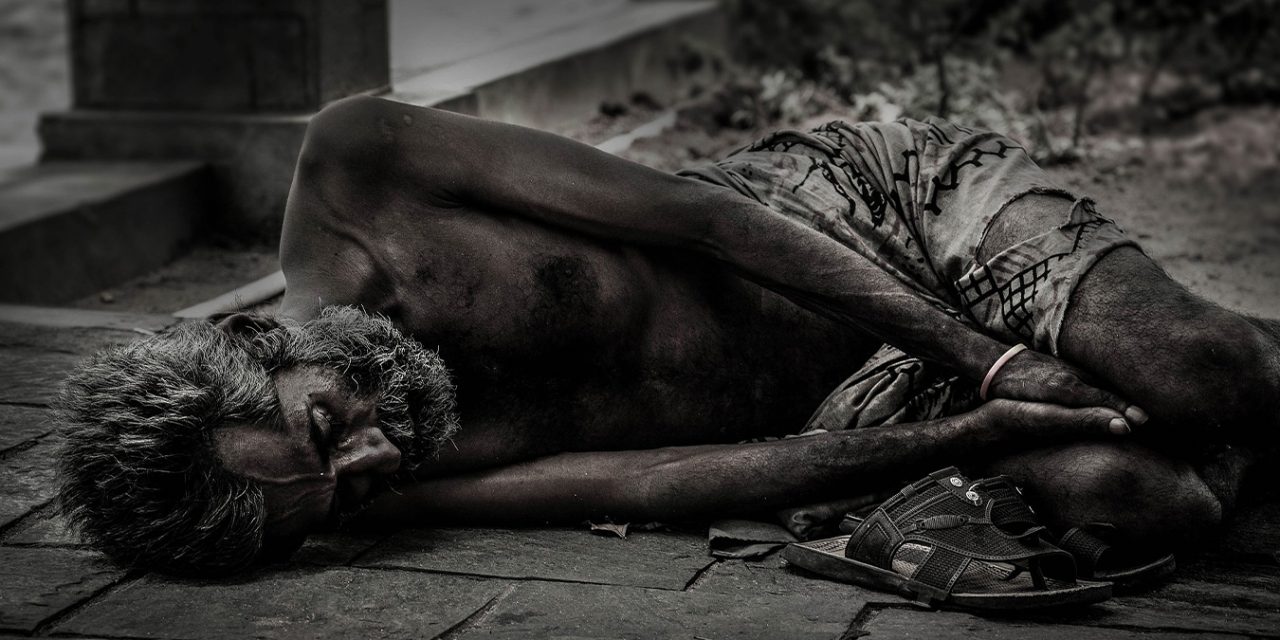The Hunger Project, an NGO which fights to end world hunger, explained to Belong in an exclusive interview what steps need to be taken to eradicate world hunger.

Why Are People Hungry and Where do They Live?
Coonrod explained that in the corridors of the UN the term hunger does not necessarily mean that someone is starving. Hunger is rather an umbrella term that covers undernutrition as well as severe and malnutrition. The effects even of undernutrition mean a person is not getting enough calories, proteins or vitamins and may result in poor health or stunted growth in children.
The greatest proportion of hungry people in the world live in Sub-Saharan Africa and Asia. India has a third of the world’s hungry people and many people in the rural north of China are still going hungry, despite China’s rapid economic growth in the past two decades.
There is a strong link between poverty and hunger, most hungry people are also poor people, but there are also other factors at play particularly conflict and to a lesser extent climate change related disaster, such as the recent cyclone that devastated coastal regions of Mozambique in March.
“The kinds of conflict that are going on in Syria, Iraq and northern Nigeria. These were not particularly hungry places five years ago. These were places where we saw relative stability, relative peace and relative lack of corruption,” said Coonrod.
Syria has never been a poor country, yet it has been ravaged by civil war for seven years and experienced a drought that badly affected farmers but that was ignored by the government.
There are also regions of the world that are poor that have eliminated hunger, for example, the Kerala state of India.
“It’s not one of the richer states of India but its got quality of life that’s pretty similar to the developed world, in terms of life expectancy, nutrition levels, and mortality rates,” said Coonrod.

What Needs to Change
One immediate practical step, Coonrod explained, would be to scrap farming subsidies in the developed world.
“The countries that have made progress in ending hunger have done so through having a real expansion in agricultural production and the systematic denial of markets to poorer countries is very unjust,” explained Coonrod.
Coonrod is clear that the kind of economic growth in the world has to change and that the UN’s Sustainable Development Goals are calling for inclusive, sustainable growth.
“We really need to emphasise how different that is to the sort of growth we have seen in the past 30 years. So inclusive growth means economic growth for the poorest. We are going to have population growth, so some economic growth is inescapable, but let’s shift it to being inclusive and sustainable,” he said.
Of all the income generated by global GDP growth between 1999 and 2008, the poorest 60% of people on the planet received just 5% of it.
Despite criticism from some quarters, Coonrod believes the UN is right to try and work with big business and corporations to try and solve world poverty and hunger. For example, there are companies, such as Unilever and L’Oréal that support initiatives such as zero deforestation.
“The people I’ve talked to at the UN are trying to have some influence on the norms and aspirations of business people. The United Nations has really sought to find a group of enlightened corporate leaders who would seek to change the norms within business because they have such enormous influence,” said Coonrod.
Coonrod, who was overseeing a project in Togo, West Africa, when I spoke to him, explained that there is not a crisis of food but a crisis of democracy and this is why so many people are still hungry. In the developed world, even with a swing towards ever greater privatisation, local communities control about 50% of public resources, whereas, in the poorest countries, local communities control only 2-3% of public resources.
“We are pushing for a devolution of public resources down to the counties and sub-counties so that people have a chance to hold local government to account for decent services,” said Coonrod. “This is particularly important for women. Unless they have access to healthcare and the kind of drudgery reducing opportunities, like hand pumps and grain mills, they will never escape extreme poverty,” he added.
While the SDG’s may not be perfect, they are ambitious and unlike the Millennium Development Goals (MDGs) that proceeded them, they are trying to harness the huge resources of the business world to create more sustainable growth. Perhaps we should wait and see before we condemn what the SDGs achieve.]]>
- Why is California So at Risk from Wildfires? - 13th November 2019
- Carbon Offsetting is Growing but Does it Make a Difference? - 11th November 2019
- Three Confirmed Dead as Australia Prepares for “Catastrophic” Bushfires - 11th November 2019






